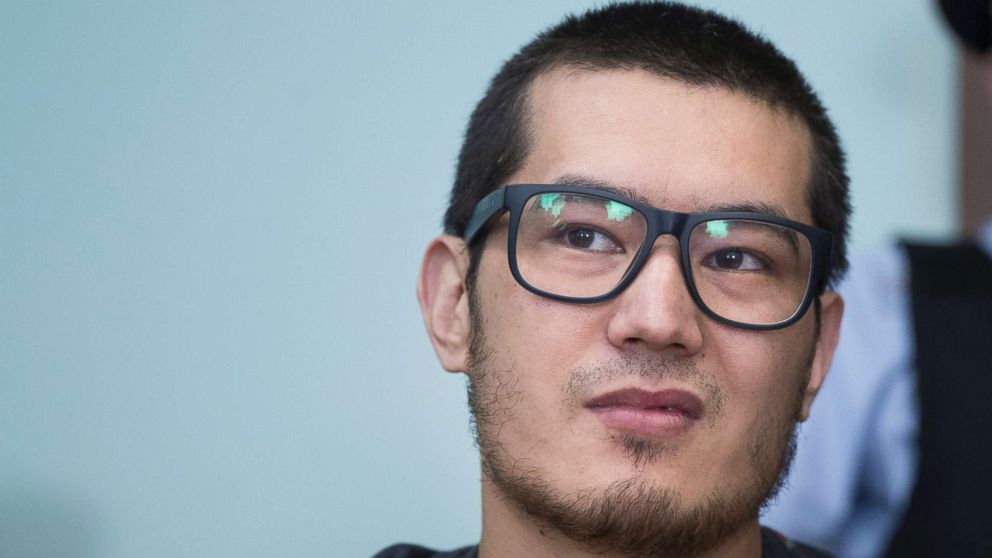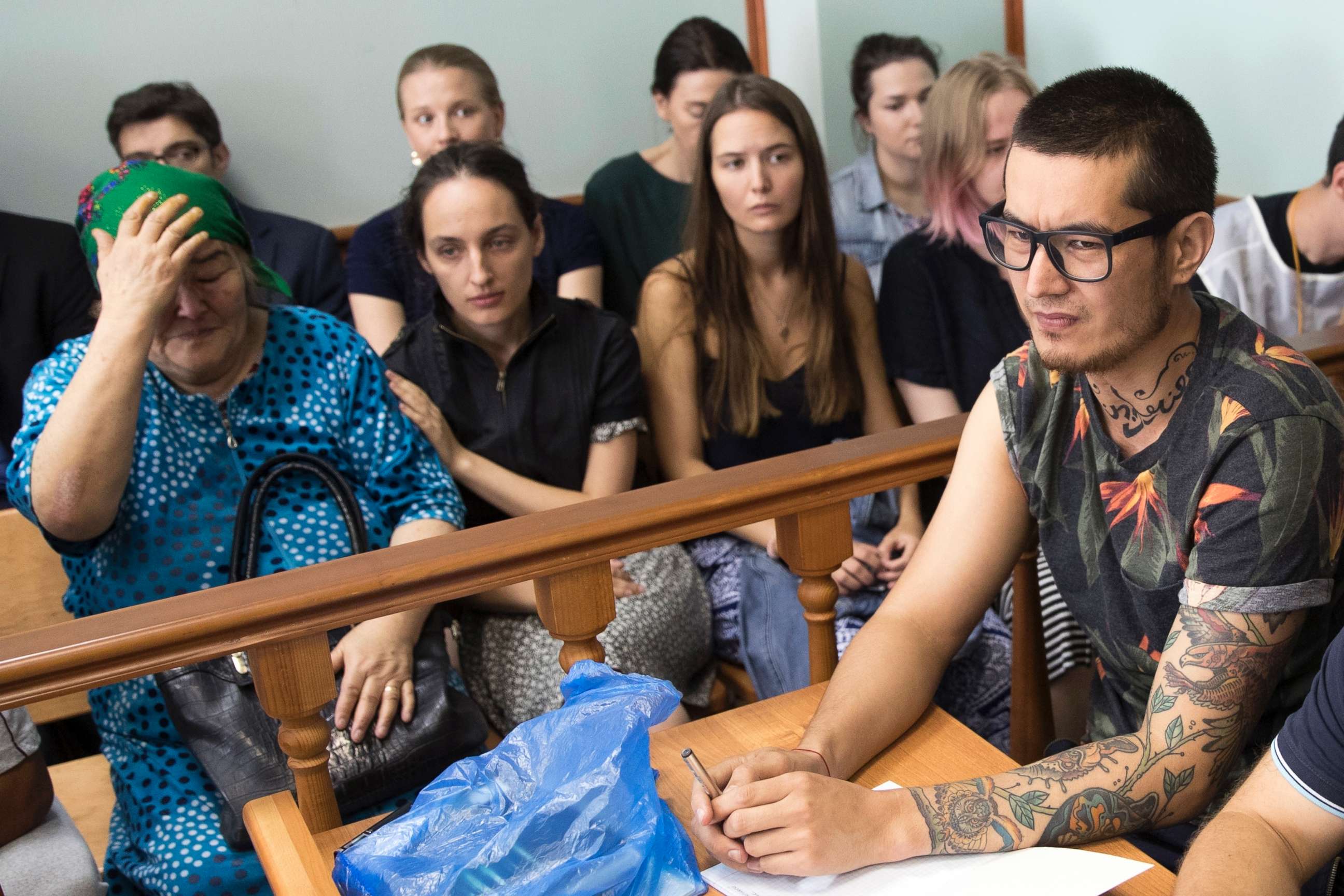Russian court blocks deportation of gay journalist to Uzbekistan
Activists said he faced torture in Uzbekistan where homosexuality is illegal.

— -- A Moscow appeals court has temporarily blocked the deportation of a gay journalist to Uzbekistan, where rights groups had warned he could face imprisonment and torture.
The imminent expulsion of the journalist, Khudoberdy Nurmatov, to Uzbekistan, ranked by rights groups as one of the most repressive countries in the world and where homosexuality is illegal, has attracted international criticism and appeals to Russia to halt it. On Friday, the European Court of Human Rights ordered an emergency stay on Nurmatov's deportation.
The judge at the Moscow City Court today responded to that order, ruling that no deportation will take place until Nurmatov’s case has been examined by the European Court.
Nurmatov will now likely remain in a migrant detention center until the European Court ruling, one of his lawyers said. That could take between a year and 18 months, the lawyer, Tatiana Glushkova, told ABC News by phone.
Nurmatov, who writes under the pen name, Ali Feruz, works for the Russian investigative newspaper, Novaya Gazeta. He fled Uzbekistan several years ago after being tortured by the country's security forces, who had pressured him to become an informant, according to his lawyers. Nurmatov, who was born in Russia but grew up in Uzbekistan, returned to Moscow in 2011 but a year later lost his passport, leaving him undocumented.
He has appealed for asylum in Russia but was rejected and last week police arrested him as walked to work at the newspaper. He has been held at the detention center since a lower court ruled that he be expelled to Uzbekistan.
Human rights groups have warned that Nurmatov would likely face imprisonment and torture if he returned to Uzbekistan, given that he is openly gay and has been harassed by Uzbekistan’s security services.
“It’s not a death sentence, but it’s very close to it,” Denis Kriovsheev, Amnesty International’s deputy director for Europe and Central Asia, told ABC News on Monday of the potential deportation. “It’s very dangerous baggage to take back to Uzbekistan,” he said.
Thousands of people are held as political prisoners in Uzbekistan, according to a report from Human Rights Watch, and torture is well-documented. The country’s LGBT community faces significant harassment; sex between men is a criminal offense, punishable by up to three years’ imprisonment. An HRW report earlier this year found police extorted gay men by threatening to imprison them or publicly out them.
In court today, Nurmatov told reporters he believed the efforts to deport him were connected with his journalistic work, saying the troubles began after he published an article on elections in Uzbekistan. He said he feared a “slow painful death” awaited him in Uzbekistan, his newspaper, Novaya Gazeta, reported.

The European Union’s human rights commissioner, Nils Muiznieks, earlier this week called on Russia to release Nurmatov.
“International law prohibits sending a person to a country where there are substantial grounds for believing that the person may be subjected to torture or ill-treatment,” Muiznieks wrote in a Facebook post last Wednesday. Nurmatov has filed a new temporary asylum application in Russia but his lawyer Glushkova said she feared it would be rejected again.
Kremlin spokesman Dmitry Peskov said Moscow is aware of the case but told reporters in a briefing it was “very complicated” and that migration violations by Nurmatov couldn’t be ignored.
Russia was already under scrutiny for the treatment of its LGBT community, after reports emerged early this year that authorities in the semi-autonomous Russian republic of Chechnya were systematically rounding up and torturing dozens of gay men.
Nurmatov’s newspaper, Novaya Gazeta, was instrumental in uncovering those detentions in Chechnya, for which it has since received death threats.
Chechnya’s president, Ramzan Kadyrov, has denied the reports by asserting that there aren’t any gay men in Chechnya. After an international outcry, the Kremlin pledged to investigate but has since been accused of trying to shield the Chechen authorities.
Today’s decision is a reprieve for Nurmatov, but he will likely now remain in detention for some time. Tatiana Glushkova, his lawyer, said that the European Court had prioritized his case, meaning it should be processed within a year to 18 months. If the court upholds that Nurmatov cannot be deported to Uzbekistan, Glushkova said, the hope is Russia will release him and a European country will offer him asylum. She said one European country had already offered to help.
“I did hope that Ali will be released today and when I received the information that it didn’t happen, I was really upset,” Glushkova said by phone. But she said she was very relieved by the ruling, which she said meant Russia had recognized the European Court decision and that Nurmatov was not in Uzbekistan.
“Plan minimum has been implemented. Now plan maximum is release Ali and remove him to a third country,” she said.




